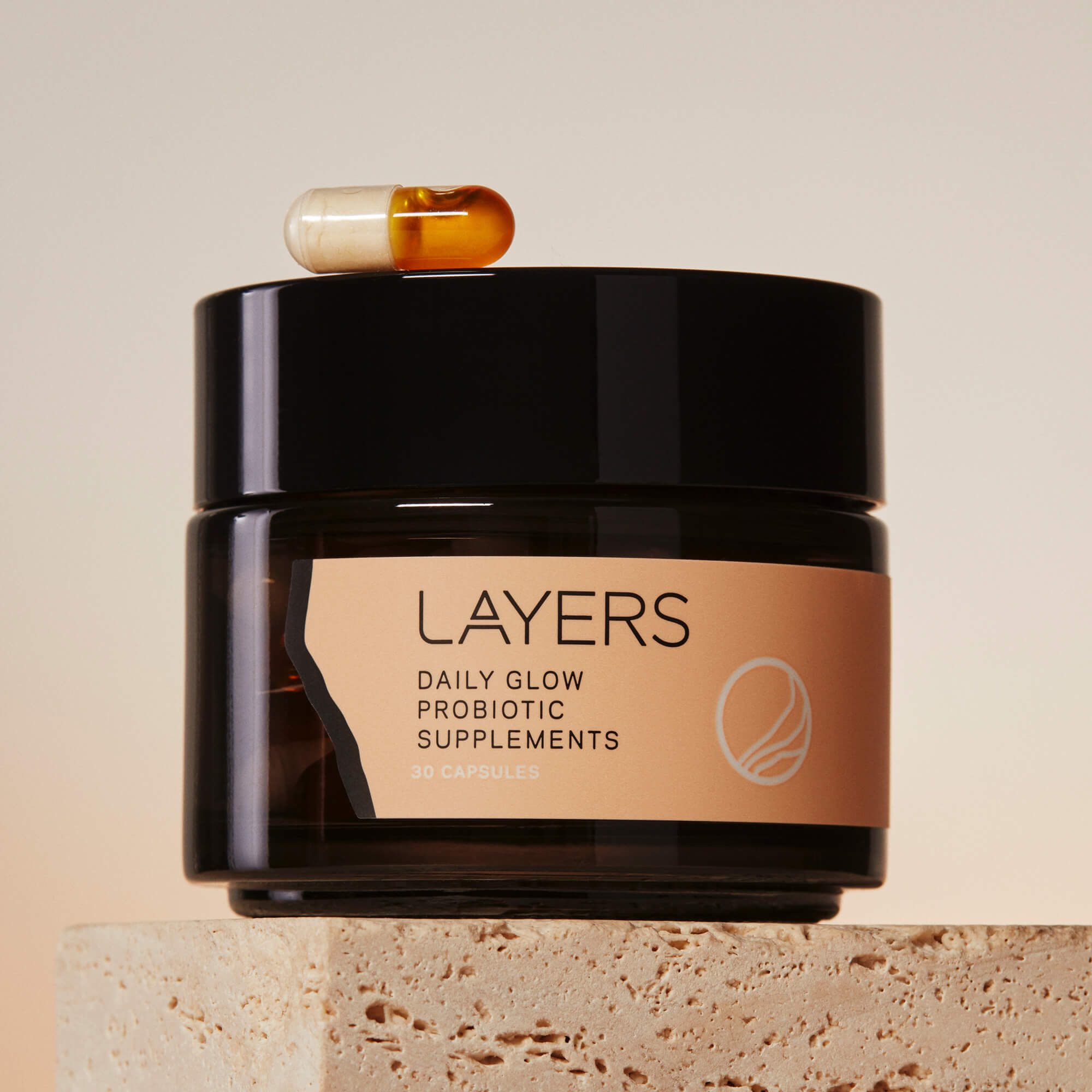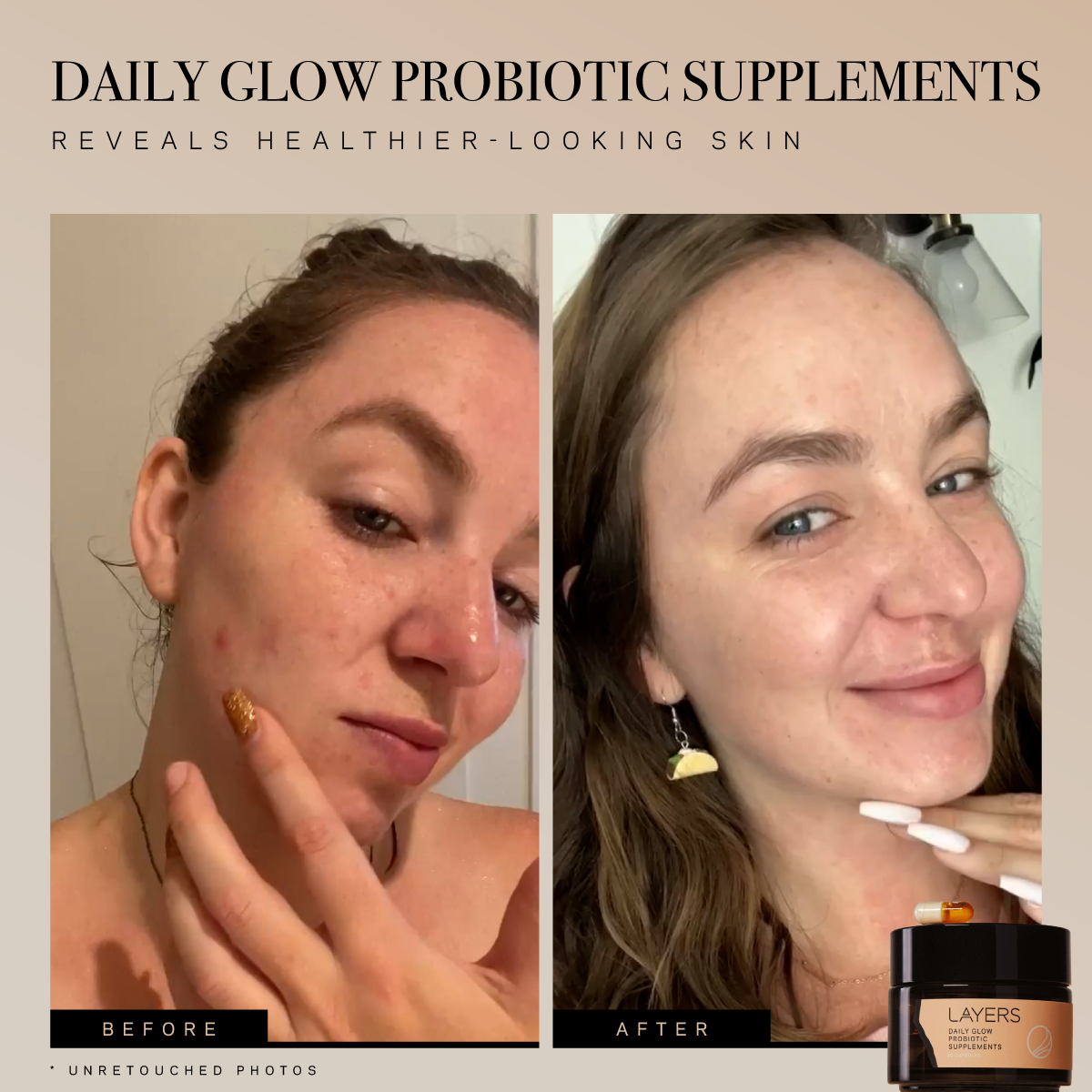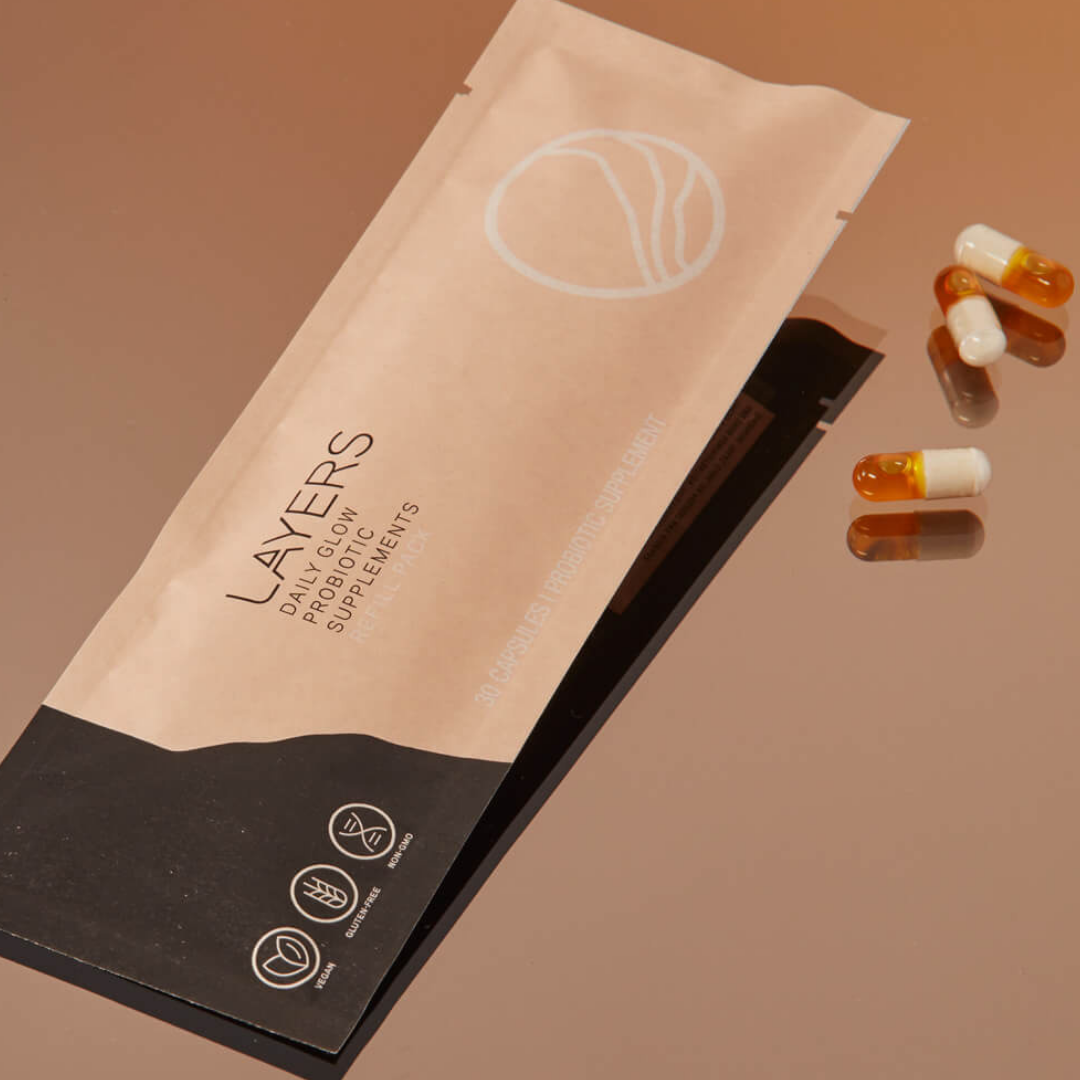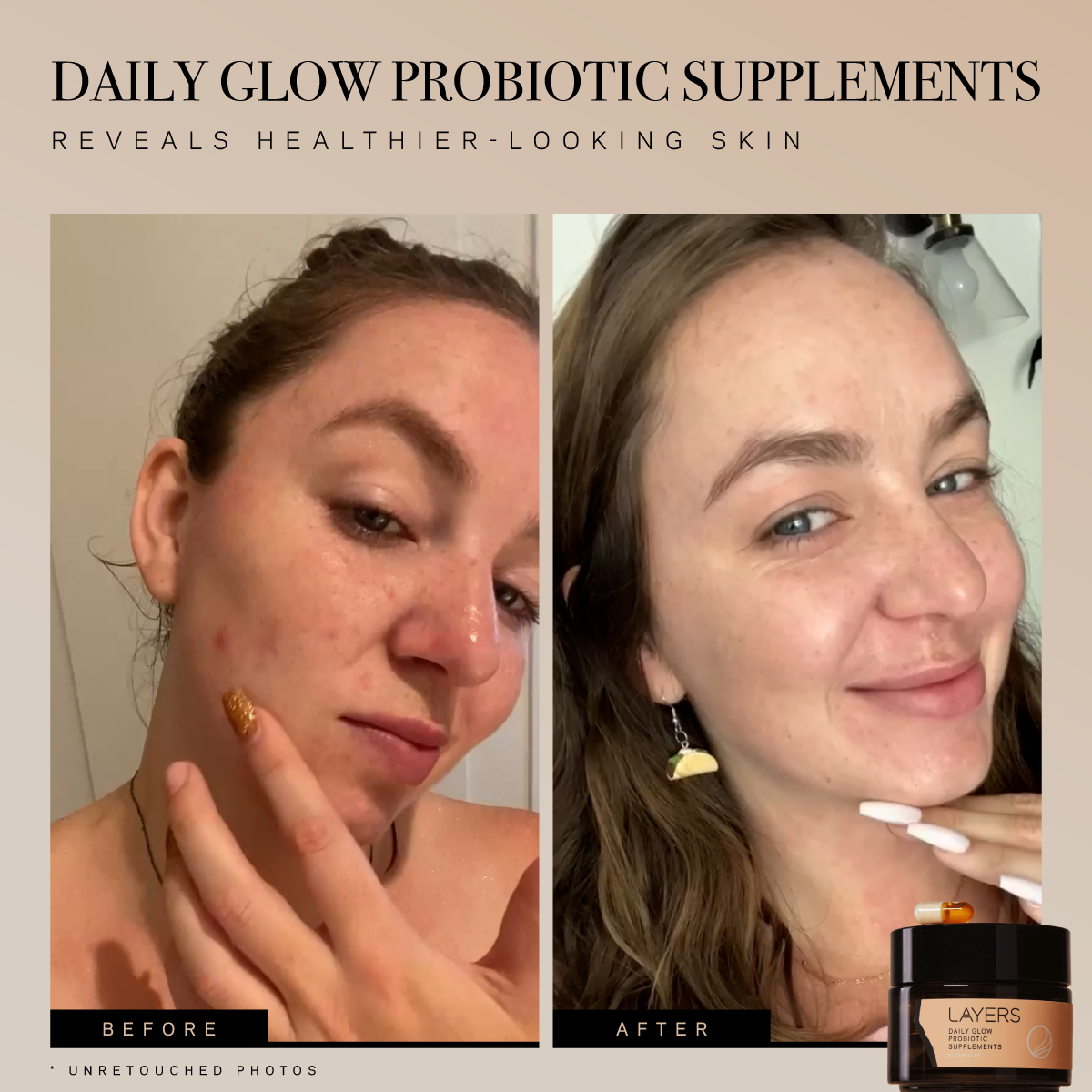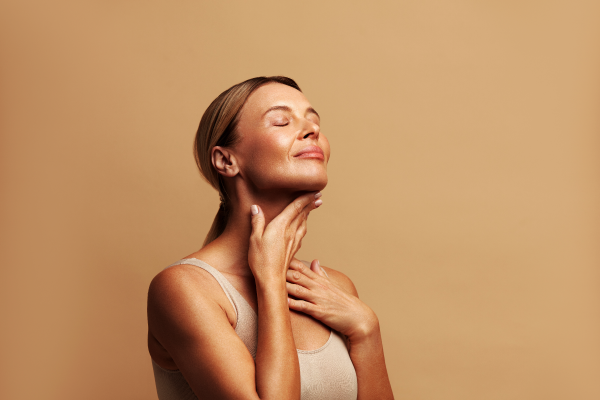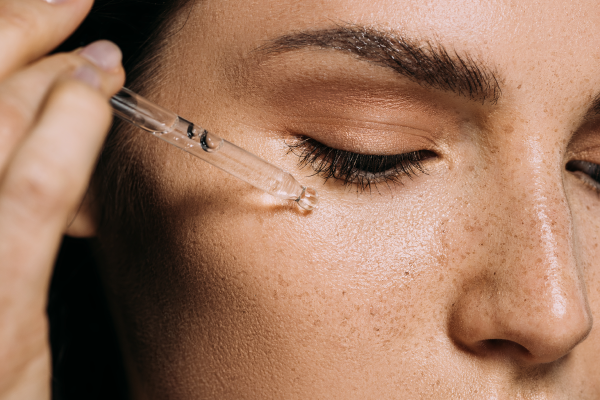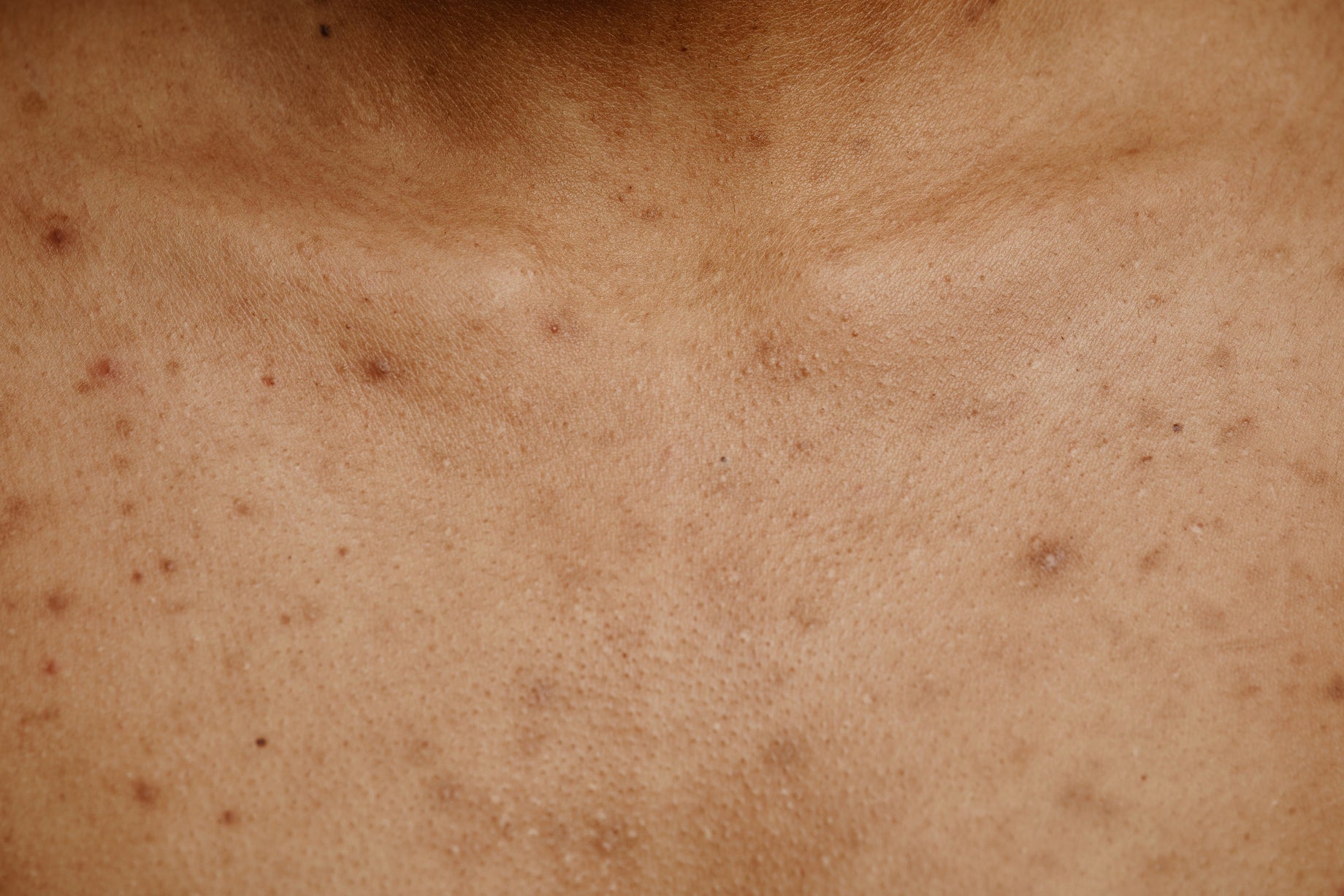Trying to calm a cranky complexion? These heroes are here to help.
We all know what it’s like to be hangry, right? You’re busy at work or running errands and all you’ve had to eat is a banana for breakfast but that was 6 hours ago. Your stomach is letting you know loud and clear that it’s time for food, which just stresses you out more because you barely have time to take a break, let alone sit down and eat!
Ok…breathe.
What’s really going on? Those extended breaks between meals cause the glucose levels in our blood to decrease, triggering stress hormones. Cortisol and adrenaline flood our bloodstream in an effort to rebalance our blood sugar. Inflamed skin is like a hungry belly that knows it isn’t getting what it wants. The manifestations of their irritations are biological overreactions to external factors, and the consequences are no fun.
WHAT IS INFLAMMATION?
Inflamed skin has a lot in common with the frustration of hunger pangs. When the pH of your microbiome is out of whack, your skin vents in the form of dryness, excessive sebum production, redness, or breakouts.
Inflammation is your body's response to any form of disruption to its natural state. Whether that’s due to climate, injury, pollution, skin conditions like eczema or rosacea, or coming into contact with irritants, if your skin is upset, you’ll notice when it reacts.
WHAT IS ANTI-INFLAMMATORY SKINCARE?
Products that are made to work with your skin’s natural biology are considered to be anti-inflammatory. Calming ingredients prevent reactionary effects from the types of enzymes that lead to swelling and inflammation on the skin’s surface. If your skin is able to maintain a state of prolonged calm, not only does that make things more manageable on the outside, but it helps prevent extended states of irritation, which are the roots of chronic and acute skin conditions.
WHICH SKINCARE INGREDIENTS ARE ANTI-INFLAMMATORY?
Here’s a shortlist of ingredients known to help calm cranky skin:
-
Ceramides:
These are fatty lipids found tucked in between your skin cells. You can think of them like the glue that holds your skin together. If your skin doesn’t produce enough of these lipids, it can lead to symptoms like dryness, irritation, itchiness, and even cracking. In skincare, added ceramides enhance your skins ability to maintain that structure.
-
Niacinamide:
Known as Vitamin B3, this is an anti-inflammatory ingredient that’s particularly good for dry skin. Studies show that it helps prevent transepidermal water loss and increases skin hydration. It’s also valued for its ability to brighten skin, reverse hyperpigmentation, and reduces redness.
-
Aloe Vera:
Rich in essential amino acids and fatty acids, aloe vera is a natural soothing powerhouse. If you’ve ever had a sunburn, you know how soothing this cool gel can be. It’s packed with vitamins A, C, E, and B-12, which work together to form a protective barrier. It allows your skin to lock in crucial moisture without making your skin oily. It also contains a chemical called magnesium lactate that calms painful itching and irritation.
-
Green Tea:
Chocked full of antioxidants, green tea can be ultra-soothing for stressed-out skin. It boasts an abundance of anti-inflammatory compounds that help reduce redness, irritation, and puffiness. It also contains free radicals that help fight UV damage.
-
Chamomile:
Using chamomile topically helps soothe inflammation and redness. Studies have found that the flavonoids and essential oils in chamomile are able to penetrate deep into the skin, infusing it with calming compounds and antioxidants. It’s a common skincare ingredient in products for treating eczema, psoriasis, and rosacea.
-
Pomegranate extract
Not only do these bright little seeds taste great on a salad, but they’re superheroes when it comes to anti-inflammatory skincare. Pomegranates contain a substance called ellagic acid which has been shown to decrease the production of pro-inflammatory cytokines when applied topically. For this reason, it’s a key ingredient of our Immunity Moisturizer.
-
Milk Thistle
This prickly thistle hides a powerful anti-inflammatory ingredient called Silibinin. A major polyphenol, silibinin has been shown to help calm and prevent common skin diseases like ezcema, psoriasis, and dermatitis. Along with pomegranate, we count milk thistle as another powerhouse ingredient of our Immunity Moisturizer.
-
Probiotics
Last but not least, practicing good probiotics is the key to maintaining worry-free skin. Probiotics are known to calm inflammation both internally and externally. Oral probiotics have been shown to heal acne, atopic dermatitis, photoaging, psoriasis, and wounds. Multiple studies on topical probiotics have demonstrated promising results for the same conditions.
HOW PROBIOTICS HELP WITH INFLAMMATION
Probiotic skincare is an approach to overall health, not just skin health. Science has long been aware of the gut-skin connection, and studies in this area are increasing at a dramatic rate. Our gut is the internal regulator of our microbiome. That means whatever is going on inside affects what we see on the outside.
With probiotics, we can improve our overall health and reap the good skin benefits that come with it. Working probiotics into your daily routine is easier than you might think. With Layers, it’s a simple 2 step process. We’ve dedicated our skincare line to the most effective probiotics in formulas your microbiome craves.
The Inside + Outside Approach to Skincare with Probiotics
Take a daily probiotic supplement.
A daily dose of oral probiotics is the key to gut health. In our one-a-day Daily Glow Supplements, we offer a proprietary blend of 5 potent strains that promote skin health:
Lactobacillus Plantarum: improves skin hydration and elasticity and reduces the appearance of wrinkles.
Bifidobacterium Lactis: improves digestion and enhances immune system functions. Also aids in the absorption of vitamins and minerals in the gut.
Lactobacillus Rhamnosus: the number one clinically studied strain to aid with digestive health. It nurtures the gut-skin axis and improves your skin barrier function by suppressing inflammatory agents.
Lactobacillus Paracasei: improves skin barrier function recovery and reduces local skin inflammation reactions. Helps calm skin sensitivity and smooth rough skin texture.
Bifidobacterium Longum: an immune-modulating strain that works to temper inflammatory responses on the skin and in the gut. It increases your skin's resistance to temperature fluctuations and potential irritation.
Use topical probiotics.
Using topical probiotics can help maintain the pH balance of your microbiome. Our topical products, including our Balancing Milky Cleanser, Immunity Moisturizer, and Renewing Probiotic Serum, contain Lactobacillus Ferment. These live probiotics have anti-inflammatory properties, help fight transepidermal water loss, and promote bacterial diversity that protects your skin from the elements.
Glowing skin doesn’t have to be hard. But it starts with what’s on the inside, and that means eating a diverse diet that includes lots of healthy fruits and vegetables. Adding a daily probiotic to the mix ensures that your gut has what it needs to function optimally. When the gut is happy, the skin will glow. An inside-outside approach might just help you say sayonara to inflammation for good!

